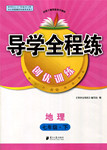题目内容
【题目】Interviewing is one of those skills that you can only get better at. You will never again feel so ill at ease as when you try it for the first time, you’ll probably never feel entirely comfortable trying to get from another person answers that he or she maybe too shy to reveal. But at least half of the skill is mechanical. The rest is instinct(本能,直觉), which can all be learned with experience.
The basic tools for an interview are paper and two or three well-sharpened pencils. But keep your notebook or paper out of sight until you need it. There’s nothing less likely to relax a person than the arrival of someone with a note-taking pad(便签纸). Both of you need time to get to know each other. Take a while just to chat, judging what sort of person you’re dealing with, getting him or her to trust you.
Never go into an interview without doing whatever homework you can. If you are interviewing a town official, know his voting record. If it’s an actor, know what plays he has been in. You will not be liked if you inquire about facts that you could have learned in advance.
Many beginning interviewers are afraid that they are forcing the other person to answer questions and have no right to inquire about his personal secrets. The fear is almost 100 percent unnecessary. Unless the person really hates being interviewed, he is delighted that somebody wants to interview him.
Most men and women lead lives that are uninteresting, and they grasp any chance to talk to an outsider who seems eager to listen.
This doesn’t certainly mean that it will go well. In general you will be talking to people who have never been interviewed before, and they will get used to the process awkwardly(笨拙地), perhaps not giving you anything that you can use. Come back another day; it will go better. You will both even begin to enjoy it—proof that you aren’t forcing your victim to do something he doesn’t really want to.
【1】The word “reveal” could best be replaced by ________.
A. ask B. question
C. give D. look
【2】According to the passage, during an interview notebooks or paper should ________.
A. never be used B. be used only when necessary
C. be kept at home D. be given to the interviewer
【3】It can be inferred from Paragraph 4 that most men and women ________.
A. are afraid to meet interviewers B. hate being interviewed
C. like being interviewed D. fear to speak to outsiders
【4】According to the passage, if a person being interviewed is too uneasy to give you anything useful, what should you do?
A. Arrange another interview. B. Give him or her a bad score.
C. Wait until he or she calms down. D. Try to make him or her trust you
【答案】
【1】 C
【2】 B
【3】 C
【4】 A
【解析】
本文是一篇说明文。文章介绍了采访中需要注意的几个地方:采访所需配备的工具,采访前做好准备,了解采访双方的心理等等。
【1】词义猜测题。根据第一段you’ll probably never feel entirely comfortable trying to get from another person answers that he or she maybe too shy to reveal.(你将可能不会感到完全舒适,试图从别人那里得到他或她可能羞于透露的答案。)可知,此处reveal意为“给予”(reveal本意意为“揭示,揭露”)。故选C。
【2】推理判断题。根据第二段But keep your notebook or paper out of sight until you need it.一句可知,只有在你需要的时候才可以把笔记本或纸张拿出来。因此可以推断在采访中只有在必要的时候才可以使用笔记本或纸张。故选B。
【3】推理判断题。根据第四段the fear is almost 100 percent unnecessary. Unless the person really hates being interviewed, he is delighted that somebody wants to interview him.可知,除非真正厌恶被采访,人们是很高兴接受采访的。故选C。
【4】细节理解题。根据最后一段Come back another day; it will go better. You will both even begin to enjoy it可知,当受访者状态不好的时候,你可以改天再来,那样情况会好一些。故选A。

 导学全程练创优训练系列答案
导学全程练创优训练系列答案